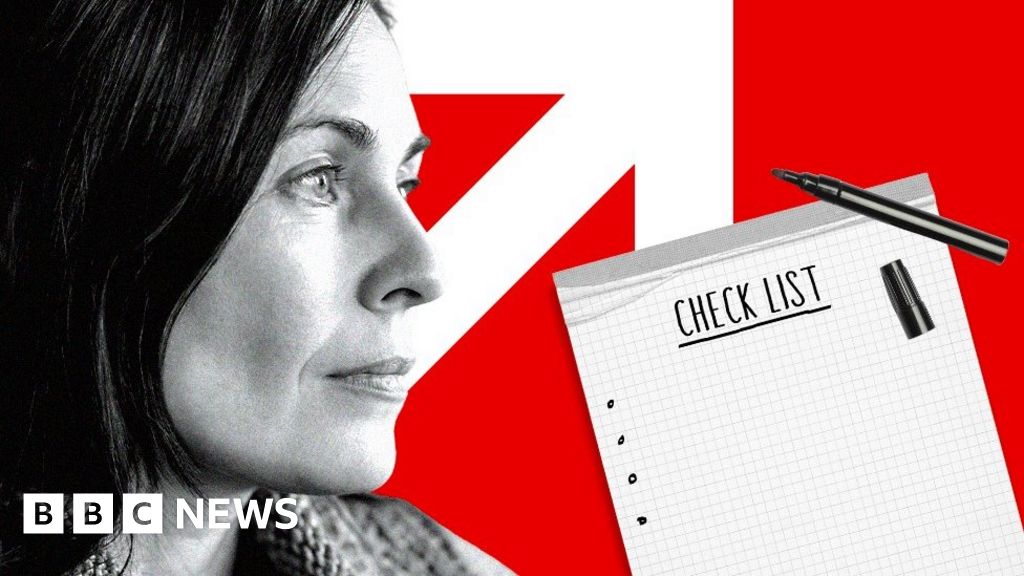Cost Of Living: What Do I Do If I Can't Afford To Pay My Debts?

The rising level of bills and prices are leading some people to borrow more, or leaving them struggling to make debt repayments.
A poll for the BBC indicated that half of those asked had used credit in some way to pay for Christmas and the holiday season. A third of those were not confident in their ability to repay.
So what can you do if you find yourself in difficulty?
Who can I talk to?
It is important that you do talk about financial difficulties before finding yourself in a spiral of debt. The earlier, the better.
If you think you cannot pay your debts or are finding dealing with them overwhelming, seek support straightaway. You are not alone and there is help available. A trained debt adviser can talk you through the options available.
What practical steps should I take?
Consumer advice charity Citizens Advice says that you should work out how much you owe, who to, and how much you need to pay each month.
Identify your most urgent debts. Rent or mortgage, energy and council tax are called priority debts as there can be serious consequences if you do not pay them, and so they should be paid first.
Calculate how much you can cover in debt repayments. Create a budget by adding up your essential living costs like food and housing, and take these away from any income such as your wage or benefits you receive.
Always see how you could boost your income, primarily by checking what benefits you are entitled to, and whether you are eligible for a council tax reduction or a lower tariff on your broadband or TV package.
How to check if you can claim a benefit
My energy bills are the biggest problem. Will my supplier help?
If you don't agree a payment plan with your supplier, they might try to force you to have a prepayment meter installed, or they may switch your existing smart meter to prepayment mode.
Your supplier must give you a chance to clear your debt through a payment plan first.
I need some time to get myself sorted. What do I do?
A "breathing space" scheme in England and Wales shields people in problem debt from further interest and charges.
People receiving debt advice can apply for the break, which lasts for up to 60 days, to prevent them falling into a spiral of debt.
Image source, Getty Images
People receiving mental health crisis treatment can apply for a scheme which lasts for the length of that treatment, plus another 30 days.
Consultation is underway for a similar scheme in Northern Ireland. In Scotland, an alternative short-term debt relief system is known as a Statutory Moratorium.
What happens if there is no prospect of paying off debts?
For some people, there is little or no chance of paying off debts, and so they may have to consider some form of personal insolvency.
This should only be done after seeking advice. There are different forms of insolvency which may be considered depending on your circumstances and where you live.
Bankruptcy: This is the most serious option, which involves an official receiver being appointed to sell off your assets to pay your debts. If you own a house or a car you may lose them.
The bankruptcy will affect your credit record for at least six years. But after one year all your debts will be written off. The procedure currently costs £680, but you can pay in instalments.
Individual Voluntary Arrangement: Under an IVA, an insolvency practitioner will help you strike a deal with your creditors, which allows you to pay off your debts over a fixed period - say five years. Once approved, all interest on unsecured debt is frozen.
There is less stigma with an IVA, and a greater chance of you keeping your home if you own one.
Debt Relief Order: This form of insolvency, introduced in 2009, is the easiest of all. Your debts must not exceed £30,000. If your application is accepted, some debts will be frozen for one year, then written off. A DRO costs £90.
Insolvency in Scotland: If you live in Scotland, bankruptcy is known legally as sequestration. However there are three alternatives: A Debt Arrangement Scheme, A Debt Management Plan, or a Trust Deed.
From Chip War To Cloud War: The Next Frontier In Global Tech Competition
The global chip war, characterized by intense competition among nations and corporations for supremacy in semiconductor ... Read more
The High Stakes Of Tech Regulation: Security Risks And Market Dynamics
The influence of tech giants in the global economy continues to grow, raising crucial questions about how to balance sec... Read more
The Tyranny Of Instagram Interiors: Why It's Time To Break Free From Algorithm-Driven Aesthetics
Instagram has become a dominant force in shaping interior design trends, offering a seemingly endless stream of inspirat... Read more
The Data Crunch In AI: Strategies For Sustainability
Exploring solutions to the imminent exhaustion of internet data for AI training.As the artificial intelligence (AI) indu... Read more
Google Abandons Four-Year Effort To Remove Cookies From Chrome Browser
After four years of dedicated effort, Google has decided to abandon its plan to remove third-party cookies from its Chro... Read more
LinkedIn Embraces AI And Gamification To Drive User Engagement And Revenue
In an effort to tackle slowing revenue growth and enhance user engagement, LinkedIn is turning to artificial intelligenc... Read more

